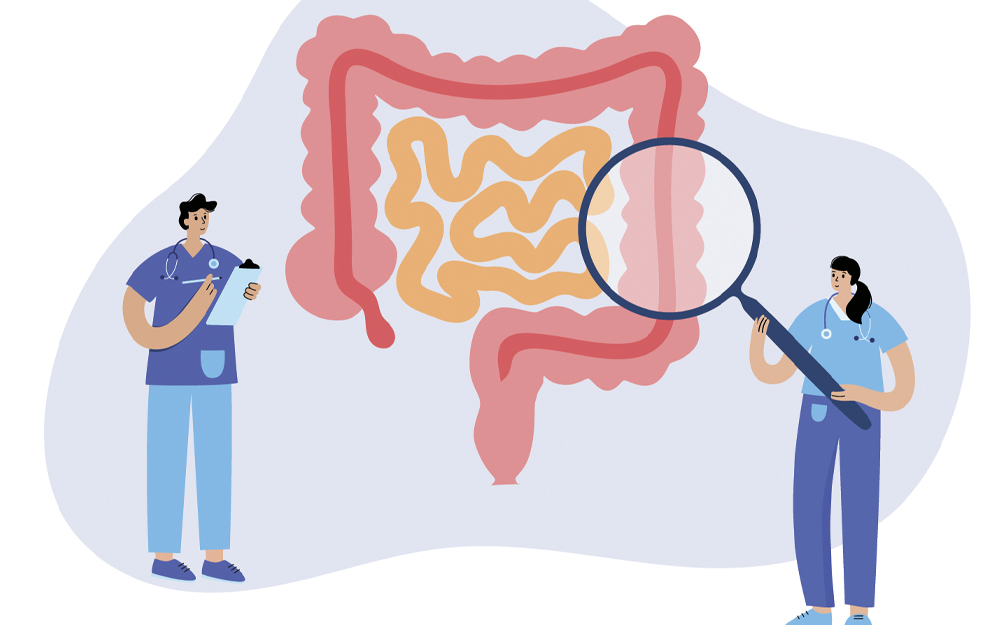Last updated:
Screening Saves Lives
Colorectal cancer is a leading cancer killer in the U.S., but it doesn’t have to be. Screening for colorectal cancer, beginning at age 45, helps prevent colorectal cancer by finding precancerous polyps (abnormal growths) that can be removed before turning into cancer. It also helps find colorectal cancer early when treatment works best. Colorectal cancer doesn’t always have symptoms, especially at first, which is why getting screened regularly for it is so important. There are several screening test options including some you can even do from home. A doctor can help individuals decide which screening test is best for them.

Who Should Get Screened?
Starting at age 45, everyone needs to start regular screening for colorectal cancer, regardless of gender or family history because most colorectal cancers occur in people with no family history of the disease. Young adults should also talk to their health care provider about a screening plan as they get closer to age 45.
Barriers to Screening
Despite the importance and effectiveness of preventing colorectal cancer through regular screening, people face many barriers.
- Updated Screening Recommendations: The United States Preventive Services Task Force recommendations were updated in 2021 to begin screening for colorectal cancer at 45 years of age instead of the previous recommendation of 50 years old.
- Fear and Discomfort: People are often embarrassed to discuss health issues with their doctors or even to tell friends and family that they are getting a colonoscopy. Some people may find the colonoscopy prep uncomfortable or inconvenient. Even at-home screening tests involving packing and shipping stool samples may make some people feel apprehensive.
- Lack of Awareness About Colorectal Cancer Risk: Some common misconceptions about colorectal cancer are that it only affects men, and that screening is only needed if there is a family history. Additionally, people may think they don’t need to get screened if there are no symptoms, but people don’t always have symptoms of colorectal cancer until it’s at an advanced state. There is also a lack of awareness that screening for colorectal cancer can actually prevent cancer by finding precancerous polyps that can be removed.
- Health Equity: High costs, lack of insurance, inaccessibly to transportation, or not having a primary care provider are some of the barriers to getting screened. Colonoscopies, one of the screening options, may require time off work and other responsibilities for the procedure and prep, which is not always an option for people.
- Belief That There is Only One Screening Test: Many people don’t know that colonoscopies aren’t the only screening option for people at average risk. There are screening tests that can even be done at home with stool samples. Individuals should speak with their doctor to determine which test is best for them.
- Delayed Screening: Colorectal cancer screening rates have dropped over the past years. Many people delayed getting screened during the pandemic and instead focused on urgent healthcare needs.
Although there are many barriers, people recognize that screening can often provide peace of mind.
Other Factors
Most people should begin screening for colorectal cancer at age 45 and continue getting screened at regular intervals. However, an individual may need to be tested before age 45 if they are at increased risk due to a family history of cancer or a history of polyps. People with a family history of cancer should collect as much information as they can about the types of cancers that run in their family and the age their family members were when diagnosed and share that with a doctor. An individual may have a higher risk of colorectal cancer and being diagnosed at a younger age if their family members had colorectal, uterine (endometrial), stomach, liver, kidney, brain, or some skin cancers.
In addition to screening, some studies suggest that people may reduce their risk of developing colorectal cancer by increasing physical activity, keeping a healthy weight, limiting alcohol consumption, and avoiding tobacco. Eating a diet that is lower in animal fat, rich in fruits and vegetables, and high in fiber may also lower the risk of colorectal cancer.
Resources
- Colorectal Cancer: Screening – U.S. Preventive Services Task Force
- Reducing Risk for Colorectal Cancer – CDC

